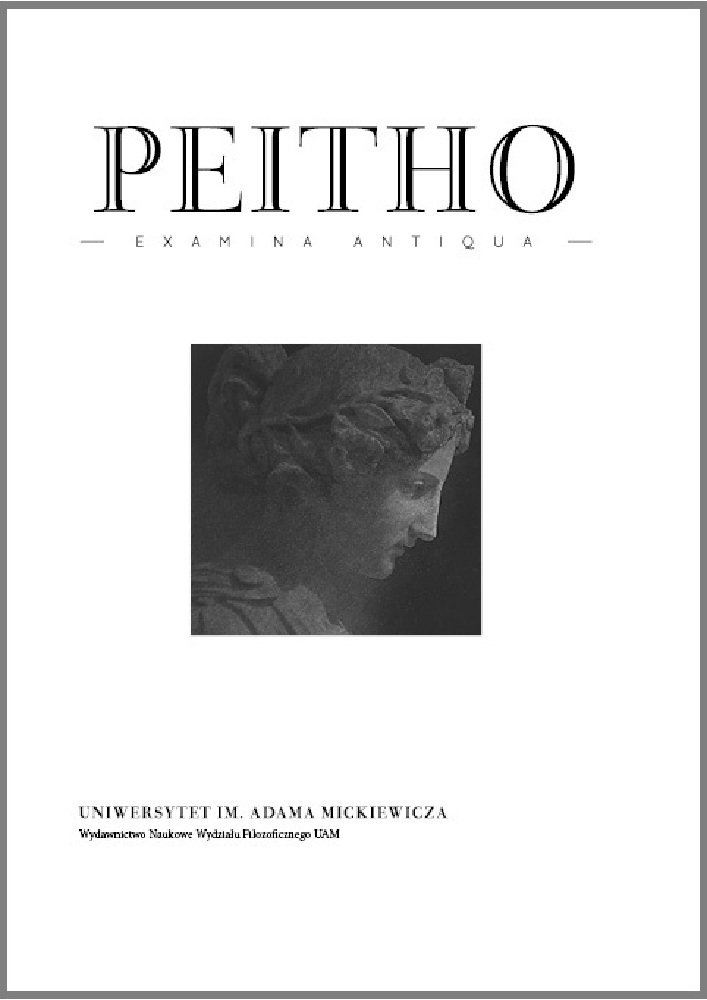Abstract
This article is primarily concerned with Platoʼs later dialogue, the Sophist, and the reception of the megista-gēnē-dialectic in Neoplatonism (especially Plotinus and Proclus). The present paper offers a historical comparative study that consists of three parts. The first one gives a short summary concerning Platoʼs request regarding the concept of inverse and complex Ideas. The second one examines Plotinus’ conception of the νοῦς (Enn. VI 2, 7–8), in which the megista gēnē στάσις, κίνησις, ὄν, ταὐτόν and ἕτερον constitute the realm of the intellect. While the third and final part of the article investigates Proclusʼ extrapolation of the Platonic dialectic, it focuses on selected passages from the Commentary on the Parmenides. The paper concludes with a summary of the results.
References
Hegel, G.W.F. (TWA) = Werke in 21 Bd. Theorie-Werkausgabe. Auf der Grundlage der Werke von 1832–1845 neu edierte Ausgabe, Frankfurt am Main.
Platon, Werke, Bd. I–VIII, G. Eigler (hrsg.), Darmstadt 1900.
Plotinus, Opera, Bd. I–III, P. Henry, H.-R. Schwyzer (eds.), Oxford 1964–1973.
Proclus Diadochus, Stoicheiōsis theologikē. The Elements of Theology, E.R. Dodds (text, transl. & comm.), Oxford 1964.
Proclus Diadochus, Commentarium in Platonis Parmenidem, Hildesheim 1961.
Beierwaltes, W., 1979, Proklos: Grundzüge seiner Metaphysik, Frankfurt am Main.
Beierwaltes, W., 2007, Procliana. Spätantikes Denken und seine Spuren, Frankfurt am Main.
Cürsgen, D., 2007, Henologie und Ontologie. Die metaphysische Prinzipienlehre des späten Neuplatonismus, Würzburg.
Halfwassen, J., 2004, Plotin und der Neuplatonismus, München.
Krohs, U., 1998, „Platons Dialektik im Sophistes vor dem Hintergrund des Parmenides“, Zeitschrift für philosophische Forschung 52 [2], S. 237–256.
Tonti, S.L., 2010, Plotins Begriff der „intelligiblen Materie“ als Umdeutung des platonischen Begriffs der Andersheit, Würzburg.
Volkmann-Schluck, K.-H., 1966, Plotin als Interpret der Ontologie Platos, Frankfurt am Main.
Wurm, K., 1973, Substanz und Qualität. Ein Beitrag zur Interpretation der plotinischen Traktate VI 1, 2 und 3, Berlin und New York.
License
Peitho provides immediate open access to its content on the principle that making research freely available to the public supports a greater global exchange of knowledge.
